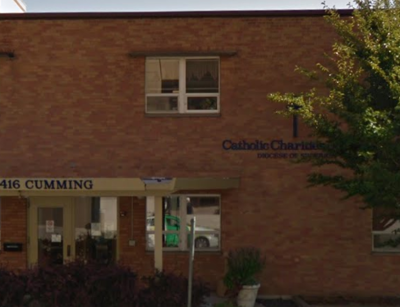Catholic Charities can't claim religious tax exemption, Wisconsin Supreme Court rules

A Catholic Charities affiliate does not meet the definition of a religious organization and must pay into Wisconsin's unemployment insurance program, the state's high court has ruled.
In a 4-3 ruling released Thursday, the Wisconsin Supreme Court upheld a lower court decision that the Catholic Charities Bureau of the Diocese of Superior does not meet the criteria for an organization that operates "primarily for religious purposes."
Justice Ann Walsh Bradley authored the majority opinion and was joined by Justices Rebecca Dallet, Jill Karofsky and Janet Protasiewicz. Justices Rebecca Bradley, Brian Hagedorn and Annette Ziegler dissented.
The ruling identifies the purpose of Catholic Charities and its entities as to "provide service to people in need, to advocate for justice in social structures and to call the entire church and other people of good will to do the same." The Catholic Charities Bureau of the Diocese of Superior oversees several sub-entities that minister "to those facing the challenges of aging, the distress of a disability, the concerns of children with special needs, the stresses of families living in poverty and those in need of disaster relief."
As Walsh Bradley noted in her opinion, Wisconsin state law exempts companies that are "operated primarily for religious purposes and operated, supervised, controlled, or principally supported by a church or convention of associated churches" from having to make payments to the state's unemployment insurance program as required by Wisconsin's Unemployment Compensation Act.
The majority opinion stated that while the Catholic Charities Bureau of the Diocese of Superior and four of its sub-entities are "operated, supervised, controlled, or principally supported by a church or convention of associated churches," specifically the Catholic Church, they are "not operated primarily for religious purposes" and therefore have to pay into the state's unemployment insurance program.
"CCB and the sub-entities, which are organized as separate corporations apart from the church itself, neither attempt to imbue program participants with the Catholic faith nor supply any religious materials to program participants or employees," Walsh Bradley wrote. "An objective examination of the actual activities of CCB and the sub-entities reveals that their activities are secular in nature."
The Becket Fund for Religious Liberty, which has represented the Catholic Charities Bureau throughout its litigation, indicated in an update Thursday that it plans to appeal the decision to the U.S. Supreme Court.
The legal group maintains that the lower court ruling against its client is "deeply problematic."
"By separating Catholic Charities from the Diocese, the court ignored the Catholic Church's determination regarding how to structure their own religious ministry. By concluding that Catholic Charities' activities are not religious because Catholic Charities serves all those in need and doesn't proselytize, the court penalized faiths that make caring for those in need — regardless of their religious background — a religious obligation," a Becket Fund statement reads.
"And, by engaging in a standardless inquiry to determine 'how religious' Catholic Charities and their subsidiary ministries are, the court of appeals entangled secular courts in deeply religious questions, violating the separation of church and state."
The litigation over the Catholic Charities Bureau's designation as a religious organization dates back to 2016, when the charitable organization sought a ruling from the State's Department of Workforce Development asserting that it was exempt from having to pay into the state's unemployment insurance program.
Following the Department of Workforce Development's decision, the Catholic Charities Bureau and its sub-entities appealed the decision to an administrative law judge, who reversed the ruling. After the Wisconsin Labor and Industry Review Commission reversed the judge's decision, a circuit court in the state sided with the CCB. The Wisconsin Court of Appeals reversed the lower court's decision, prompting the plaintiffs to seek relief from the Wisconsin Supreme Court.
Becket has characterized the idea that the Catholic Charities Bureau is not exempt from paying into the state's unemployment insurance program as a misinterpretation of state law and a violation of the First Amendment to the U.S. Constitution.
"Wisconsin's unemployment compensation statute, Wisconsin's Constitution, and the U.S. Constitution all require that courts look to the undisputed religious purpose of the Diocese of Superior when determining whether Catholic Charities qualifies for a religious exemption from the State's unemployment compensation program," the law firm insisted.
"Catholic Charities requested an exemption from the state's unemployment program so that they could enroll in the Wisconsin Bishops' Church Unemployment Pay Program (CUPP), a more efficient unemployment compensation program that provides the same level of benefits as the State's program."
Ryan Foley is a reporter for The Christian Post. He can be reached at: ryan.foley@christianpost.com




























